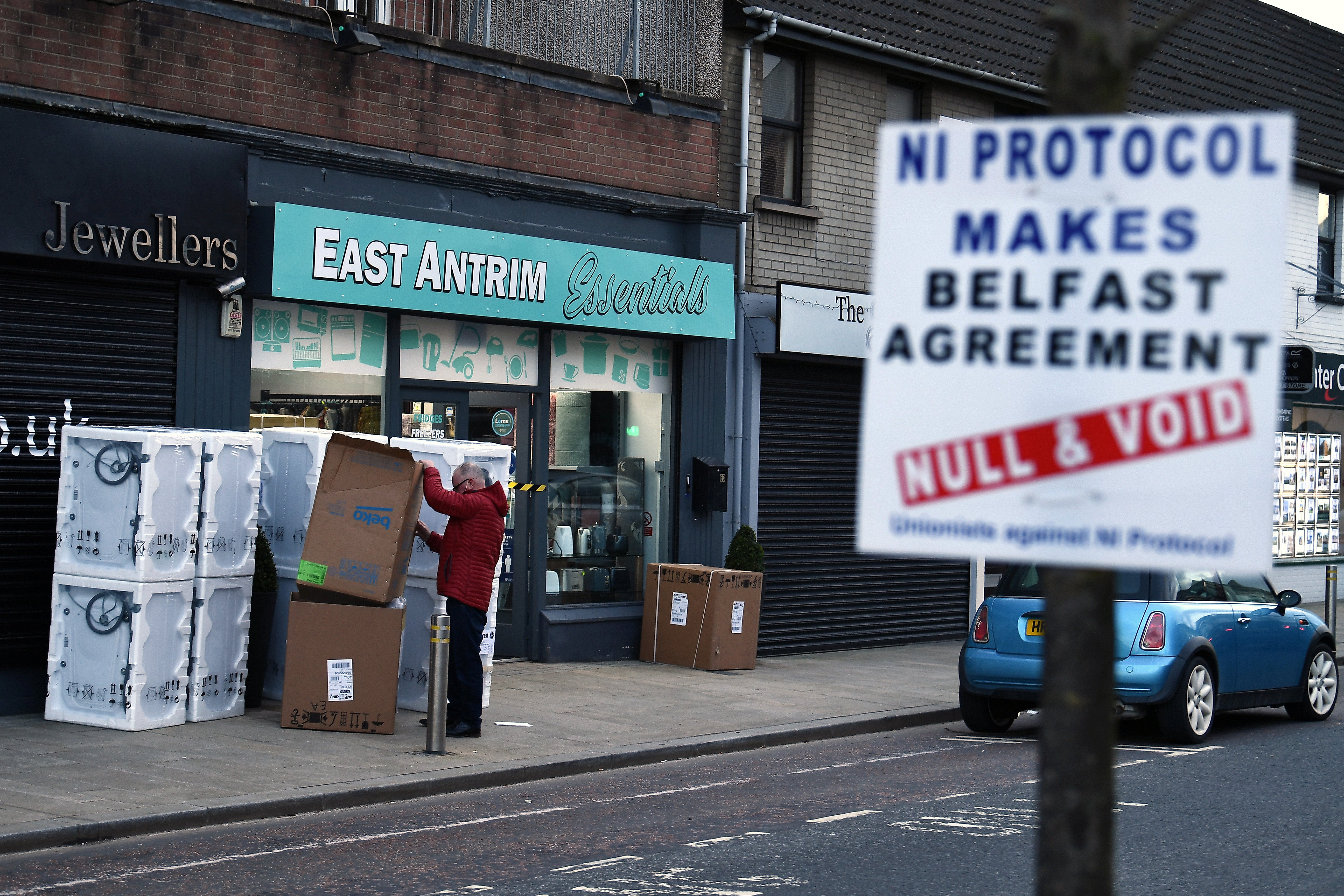Why the Northern Ireland protocol row could be another bad Brexit gamble by Boris Johnson
Downing Street is gambling that the EU and Ireland will agree to just forget the Protocol, given the obvious alternative would be to impose a trade barrier along the Irish border. Sean O’Grady explains why this is a very risky move


If nothing else David, now Lord, Frost seems a prime example of nominative determinism. In recent weeks, relations between the UK and the EU have indeed grown decidedly nippy, and the temperature continues to drop. Frosty the No Man, as some call him, has taken to the pages of the Eurosceptic press to complain about EU intransigence over trade via Northern Ireland, the short-lived threat to stop vaccines entering the province, and fishing. And, of course, there was that Lilliputian re-enactment of the Battle of Trafalgar just off Jersey. He hasn’t quite got around to asking President Macron “who do you think you are, Napoleon?”, but it cannot be far off.
Appearing before the warm hearth of a Lords Select Committee, Lord Frost offered a seemingly attractive answer to the problem of the Northern Ireland Protocol, which is to just pretend it doesn’t exist. The Protocol was negotiated by Lord Frost, agreed by Boris Johnson, backed by parliament and then, to all intents and purposes, endorsed by the British people at the general election of 2019. The text, part of the Withdrawal Agreement and the overall Brexit deal, was in the public domain and provoked some discussion.
Though few will have read it through (possibly including Mr Johnson), its implications were debated and well remarked upon. The Democratic Unionists, who regard it as a betrayal, voted against it and complained loudly. It was clear, as it was ever since Michel Barnier suggested it years ago, that it would mean an economic border down the Irish Sea and within the United Kingdom, and thus adding some checks to trade between Great Britain and Northern Ireland. In October and again at the turn of next year, further grace periods on GB-NI trade will expire, and the frictions at the border at the port of Larne – bureaucratic and political – will intensify.
Perhaps Lord Frost and Boris Johnson assumed that the battery of border controls on livestock, animal-derived food, drugs and much else would be a very light touch regime, given what they say is a negligible risk of goods from the UK as an open back door into the EU. Thus, Northern Ireland would have soft borders, if any, with Great Britain and with Ireland, and the essentials of the UK Internal Market and the Good Friday Agreement would be preserved. The EU is more legalistically minded, less pragmatic and more ideological about the integrity of the Single Market, and has treated the UK as it might treat, say, Ukraine. The British think this silly, given how close UK regulations are to the EU's. The EU believes that those regulations may not last for long.
Lord Frost’s suggestion is that the UK should unilaterally invoke Article 16 of the Protocol, which allows parts of the Protocol to be suspended, and for the EU to refrain from reacting while they talk about altering the agreement – and thus partly renegotiating Brexit. The UK is entitled to do so, supposedly with consultation, if there were “serious economic, societal or environmental difficulties that are liable to persist, or to diversion of trade”.
Arguably, the Protocol is being abused by the British, and the EU has already tentatively begun legal action against the UK. The threat, more or less explicit, is that the UK will just otherwise ignore the Protocol and force the EU to impose a trade border with checks between Ireland and Northern Ireland. The EU and Ireland would thus be guilty of breaching the Good Friday Agreement, not the UK. There are also dark warnings about the coming marching season in the province, and a worsening in violence and intimidation from loyalist militants. In such circumstances, peace will be even further jeopardised. Given all that, Downing Street is gambling that the EU and Ireland will agree to just forget the Protocol, aside for any egregious smuggling of economic abuses.
The gamble might work, but it might also go badly wrong. The EU could retaliate by making life even more difficult for British exporters to the EU, and for banks and the City to operate within the EU. Sentiment in Northern Ireland – which is not entirely represented by Edwin Poots and the DUP, could warm towards a united Ireland. President Biden could easily decide that if the British are prepared to act like this then the comprehensive US-UK free trade agreement will be postponed still further. Things could, in other words, turn even frostier than they already have. If so, it will take many more years yet to “get Brexit done”.



Join our commenting forum
Join thought-provoking conversations, follow other Independent readers and see their replies
Comments